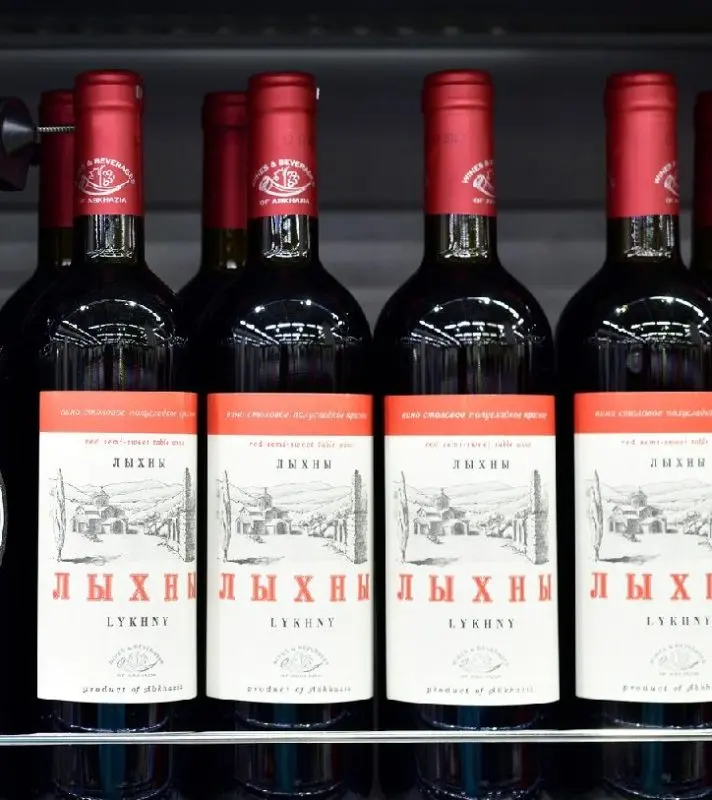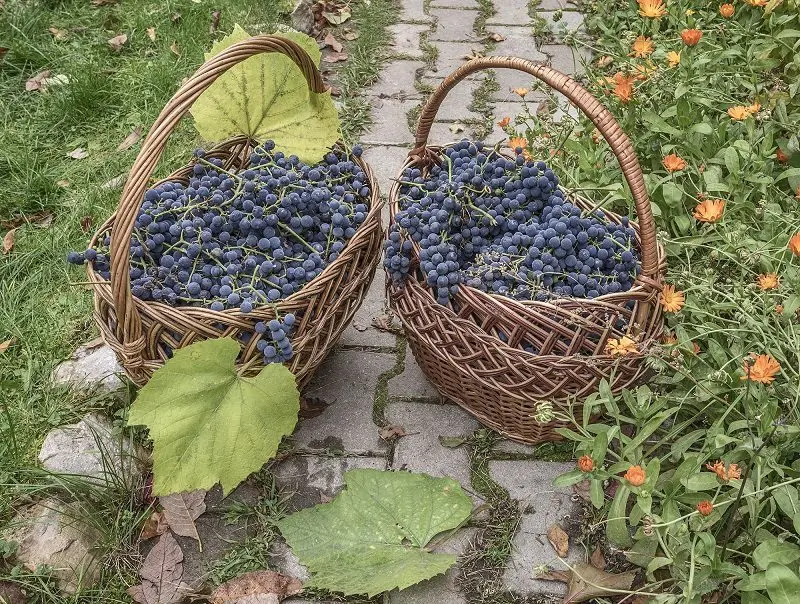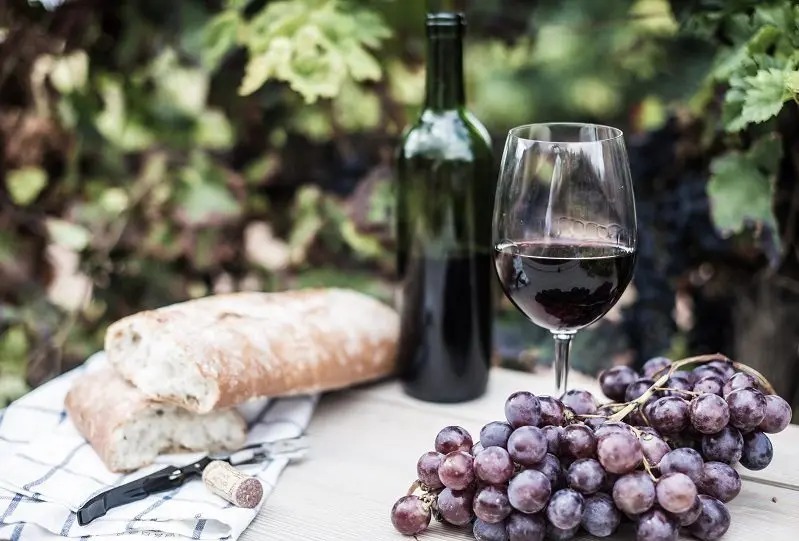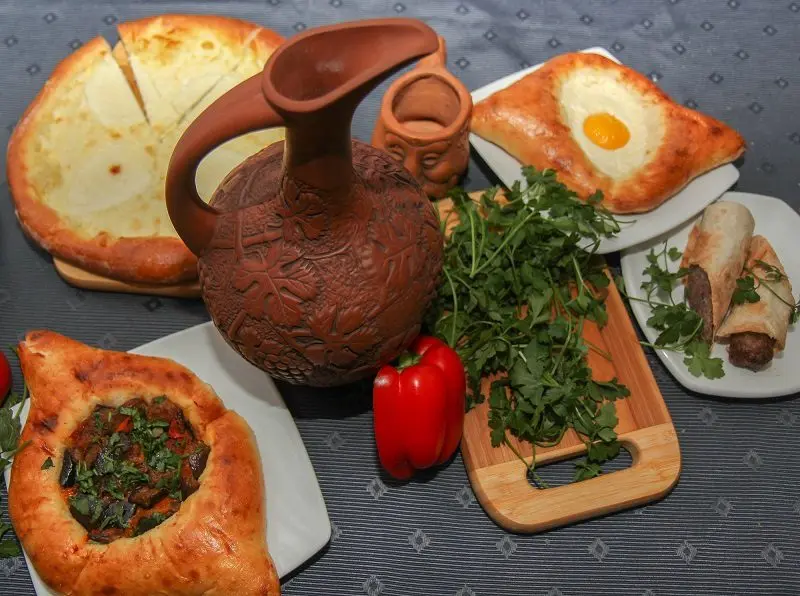Lykhny wine is produced in a small Abkhazian town, after which it got its name. However, the village of Lykhny only now looks modest, and in 1808-1864 it was the residence of the Abkhaz rulers and the capital of the principality. The ruins of the royal palace, as well as several Christian churches and temples of amazing beauty, remind of those glorious times.
The history of the settlement has more than one and a half thousand years. All this time, winemaking has been actively developing here – it is not without reason that Lykhny wine bears the unofficial title of “prince of Abkhazian wines”. The local climate with high rainfall, high temperature and humidity is not very favorable for many varieties, but the Isabella grape, which was taken as a basis, has taken root well in the region.

The Abkhazian wine of Lykhny cannot boast of a centuries-old history – the drink began to be produced only in 1962 at the Sukhumi winery, which today belongs to the Wines and Waters of Abkhazia company. Then N.B. had a hand in the creation of a new variety. Achba, offspring of an ancient princely family. Incredibly, today his descendant, N.V., is at the head of production. Achba. Representatives of this family from infancy learn the art of winemaking and pass on family secrets from generation to generation.
However, “youth” did not prevent Lykhny from becoming the wine of the elite, which is popular among the wealthiest and most influential people in the USSR: the drink was served at party banquets, they say it was one of Brezhnev’s favorite varieties, and Chairman of the Council of Ministers of the USSR Kosygin said: “How much Do not drink lykhny, it only causes revival at the table, but not intoxication.
Taste
Lykhny has a delicate bouquet with distinct notes of wild strawberry. Tasters and consumers note how easy and soft this wine is to drink. According to Kosygin, there is a legend that after Lykhna there is no hangover, even if, due to inexperience, you drink an extra glass at night. This, of course, is not entirely true: it’s just that this variety is not as strong as many other red wines, and it is more difficult to reach the state with it, after which it can be really bad in the morning.
Production technology
Table red wine Lykhny is made only from a local variation of the Isabella variety. The finished drink has a strength of 9-11 degrees and contains 3-5% sugar. Lykhny belongs to the category of natural semi-sweet wines, that is, the sweet taste is formed due to the high initial sugar content of the grapes and the forced fermentation stop at the right time (when the wine gains the planned strength), so additional sweetening with sugar is not required. A well-known similar variety is Georgian Kindzmarauli.

To achieve this effect, the berries are harvested when the sugar content reaches 17% or more. Primary fermentation takes place at a temperature of 28-32 degrees, then the must is filtered, getting rid of the pulp, and then immediately cooled to 2-3 degrees. Low temperatures provide the drink with a delicate taste without the “fox” smell characteristic of Isabella grapes.
Features of the variety
Isabella usually gives a bright, characteristic wine, but Lykhny is an exception in this sense: a delicate, delicate taste has little to do with the usual manifestations of the variety. Perhaps this is due to the fact that not completely pure Isabella is used for the production of Abkhazian wine, but a hybrid with local fragrant wild grapes. The autochthonous variety smoothed out too sharp accents of taste, made the bouquet of the wine more delicate, at the same time getting rid of the unpleasant “fox” aftertaste.

Residents of the post-Soviet space have great respect for the Isabella variety – for us, this term is associated with quality, fragrant aroma, rich bouquet, summer, the sea and neighboring countries (this grape is especially common in the Crimea and Moldova). Isabella is unpretentious, gives a bountiful harvest, resists diseases well.
On the other hand, due to hybridization (the variety is a hybrid of the European Vitis Vinifera and the American V. Labrusca), methyl alcohol accumulates in the berries, causing dangerous diseases, so Isabella is currently banned in Europe. True, there is another point of view, suggesting that the winemakers of the Old World are simply afraid of competition and are withdrawing a dangerous rival from the market.

How to drink Lykhny
Lykhny is served in classic red wine glasses chilled to a temperature of 16-18 degrees. As an appetizer, cheeses, nuts, meat dishes, grilled vegetables or desserts are suitable.

You can easily buy this brand in almost any chain store in Russia at an affordable price for quality wines or bring a couple of bottles from Abkhazia, then the purchase will cost even less. Beware of fakes! Wine is so popular that fraudsters do not miss the opportunity to capitalize on people’s love for high-quality and relatively cheap alcohol.









